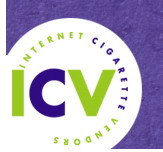The U.S. Senate cited UNC HPDP’s Internet Cigarette Vendors (ICV) study in its unanimous decision to pass the Prevent All Cigarette Trafficking (PACT) Act, which acts to curtail the growing sales of tax-evading, low-cost cigarettes and other tobacco products over the Internet and through the mail.
The PACT Act will require Internet sellers to pay all taxes before delivery to customers, to verify age and identification of purchasers, and to comply with state and local laws of customers. It also bans the delivery of tobacco products through U.S. mail.
 The ICV study provided important statistics that helped shape this breakthrough federal policy. A PACT Act hearing referred to a 2006 ICV study which showed all of the 101 vendors sampled sold cigarettes without age verification. Rebecca Williams, a HPDP research associate and co-investigator of the ICV study, wrote the study as part of her doctoral dissertation research.
The ICV study provided important statistics that helped shape this breakthrough federal policy. A PACT Act hearing referred to a 2006 ICV study which showed all of the 101 vendors sampled sold cigarettes without age verification. Rebecca Williams, a HPDP research associate and co-investigator of the ICV study, wrote the study as part of her doctoral dissertation research.
The ICV study was also recently featured in the Fall 2009 issue of Carolina Public Health magazine.
“We’ve made outstanding progress in reducing tobacco use,” said Kurt Ribisl, the principal investigator of the ICV study and an associate professor of health behavior and health education in the UNC Gillings School of Global Public Health in the article. “We don’t want (these gains) unraveled by a new system of marketing and distribution through the Internet.”
The House of Representatives is expected to adopt the Senate bill and bill proponents hope President Obama will continue his strong leadership on tobacco control by signing the PACT Act into law.
Learn more about the PACT Act.
